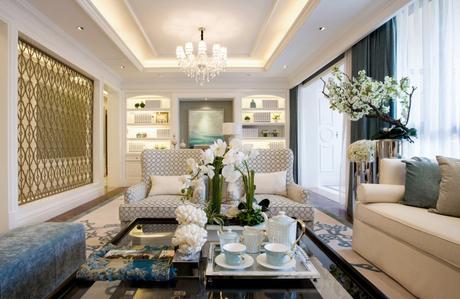Whether you're tired of ogling at the Ikea catalog or are totally jealous of your friends who seem to have it all together when it comes to decor, the desire to spruce up your living space is only natural.
Here's the thing, though: the barrier to entry for becoming an interior designer is probably a whole lot lower than you think.
In fact, getting started doesn't have to mean spending a ton of money or reading endless books, how-to guides, and blog posts. Simply consider the following five ways you get your feet wet with interior design by taking a thoughtful approach to decorating.

Try to Work with What You Have
While it's certainly tempting to spend big in order to revamp your home, take a step back and consider how you can do more by spending less.
You may already have some cans of paint from your move-in that you can touch up for example. Likewise, consider whether or not you have the ability to experiment with natural light in your home. For example, affordable blinds or shades can work wonders for the mood of your home in a subtle way.
Plan Room-by-Room
Let's get one thing straight: you can't make the mistake of trying to redecorate your entire house in one fell sweep. Doing so will run your budget dry and give you a huge headache.
Instead, ask yourself questions to hone in on the areas of your home that deserve the most of attention. For example, do you plan on having guests over frequently? Do you spend the bulk of your time in your bedroom?
Based on your answers, you can decide whether or not to take the main living area first or smaller, "private" areas of the house first.
There is no "right" answer as long as you plan in advance where you'll put your focus.
Declutter. Seriously
There are no two ways about it: you have to learn to part with your junk. Getting rid of odds and ends can be difficult, but is absolutely essential for redecorating. Think about it. How can you possibly come up with a plan until you have a proverbial "blank canvas" to work with?
Accept the Kitchen as a "Work in Progress"
From upgrades such as new appliances to cabinets, your kitchen is more often than not the most expensive room in the house when it comes time to make a change. As such, take a "slow and steady" approach to transforming your kitchen rather than try to make it happen overnight.
Not Everything Needs to Match
Despite popular belief, not everything in your home necessarily needs to match. Who says you can't have one rustic-style room and one that's totally minimalist? This rings true with colors as well: there's nothing wrong with trying new schemes and patterns as long as you avoid clashing colors.
Experimenting with different styles keeps your interior design process creative and makes your house look fabulous in the process.
Don't let your lack of "experience" hold you back from decorating the home of your dreams! Instead, focus on easing yourself into a design-driven mindset versus trying to do way too much at once.
**

